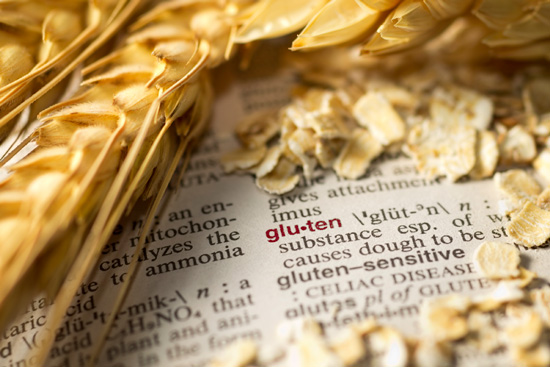About The Buzz: Is Going Gluten-Free For Everyone?

WHAT THEY’RE SAYING
Leading a gluten-free lifestyle has become a widespread trend among those looking to improve health, cut back on processed foods and lose weight. However, before jumping onto popular dietary trends, it’s important to understand the benefits and drawbacks.
WHAT THIS MEANS
Gluten-free products are tremendously popular and advertising and promotion of gluten-free products are found everywhere: grocery stores, restaurants and social media sites such as Pinterest, Facebook and Instagram. You may know someone diagnosed with celiac disease, a friend or two that have gone “gluten-free” for health reasons, or you may even avoid gluten yourself. If this is the case, you’re not alone: one in five Americans say they actively try to include gluten-free foods in their diet.1
Celiac Disease
Celiac disease is a serious genetic autoimmune disorder where the ingestion of gluten leads to damage in the small intestine.2 Gluten is a specific type of protein present in wheat, rye and barley. When a person with celiac disease consumes gluten, the small intestine becomes damaged over time because the small villi in the small intestine become damaged and can no longer effectively absorb nutrients.2 Left untreated, the long-term complications of celiac disease can be very serious and include iron deficiency anemia, early onset osteoporosis, infertility and miscarriage, lactose intolerance, multiple sclerosis (MS), neurological conditions like epilepsy and migraines and intestinal cancers, among others.Celiac disease affects less than 1% of the population, or about every 1 in 133 people, according to studies.3 Of these, it’s estimated that about 83% are misdiagnosed or undiagnosed.3 In those with celiac disease, consuming crumbs from a cutting board or plate can trigger intestinal damage. The only way to fully stop damage to the small intestine in those diagnosed with celiac disease is to follow a strict, gluten-free diet. Individuals with celiac disease must follow a strict lifelong gluten-free diet in order to protect their present and long-term health.
Others remove gluten from their diet when diagnosed with Non-Celiac Gluten Sensitivity (NCGS). Symptoms of NCGS include abdominal pain, bloating, and fatigue. It is still unclear that gluten is the true underlying cause of this sensitivity.4 It is possible, for example, that some other protein in gluten-containing cereals causes an immune response that leads to NCGS.
Unless an individual is removing gluten from her/his diet due to a medical diagnosis of celiac disease or NCGS, it’s important to discuss the pros and cons of removing gluten the diet with a physician or dietitian. If you’re attempting to lose weight, it’s important to realize that substituting gluten-free products often contain just as many calories as their gluten-containing counterparts.
Additionally, many gluten-containing foods are an important component of a healthy, well-balanced diet. Whole wheat products contain important vitamins and minerals, such as iron, B vitamins, potassium, calcium, folate and fiber, and removing whole wheat products from the diet can result in an unintended nutritional deficit. However, highly processed, non-whole wheat, gluten-containing foods, such as sugary cereals, white bread, crackers and baked goods offer few nutritional benefits. Limiting highly processed gluten-containing foods from the diet can help aid weight loss.
OUR ADVICE
If you’re looking to achieve lifelong health, minimize your risk of developing diseases, feel great and lead a balanced, healthy lifestyle, incorporate whole foods into each meal. By whole foods, we mean fruits, vegetables, whole grain products, legumes, nuts, eggs, seafood, lean meats, and healthy fats such as olive oil. Strive to fill your tank on fruits and vegetables instead of refined grain products, as fruits and vegetables contain fiber, which will help you to feel full and nourished without overeating. Gluten-containing products are an important component to a balanced, healthful diet. Deciding to go gluten-free for non-medical reasons should be done after carefully by weighing all of the benefits and drawbacks in order to make the choice that is best for you, your lifestyle and your health.
Video Center: Selection. Storage. Preparation.
How Many Cups Do You Need?
Key Nutrients in Fruits & Vegetables
Fruit & Veggie Database


